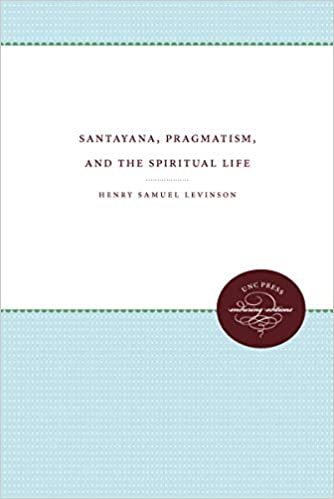By Henry S. Levinson (NHC Fellow, 1985–86)

Chapel Hill: The University of North Carolina Press, 1992
From the publisher’s description:
Henry Levinson offers a major reinterpretation of the Spanish-born American philosopher George Santayana (1863-1952), which highlights his relationship to the tradition of American pragmatism. He shows that Santayana's role in forming the pragmatist tradition was greater than has usually been recognized and that Santayana has much to offer contemporary pragmatists.
Levinson puts Santayana at the forefront of pragmatism by emphasizing his reflections on the cultural structures that shape human life and expression. He explores Santayana's interest in solitude and society, his poetic construals of religious thought and ritual, his institutional rendition of pragmatism, and his concern to distinguish spirituality and politics. In doing so, he gives attention to Santayana's precursors, like Ralph Waldo Emerson; to his teachers and colleagues, including William James and Josiah Royce; to other pragmatists of his time, such as John Dewey and Sidney Hook; and to contemporary writers, including Richard Rorty and Milan Kundera.
Levinson's book illuminates an area neglected in both American literary history and the history of pragmatism. No other book has so carefully and centrally focused on the development of Santayana's scholarship, and no other author captures the way in which Santayana's concern with spirituality connects his earlier and later works.
Subjects
Religion / Literature / Philosophers / Pragmatism / Spirituality / American Literature / George Santayana /Levinson, Henry S. (NHC Fellow, 1985–86). Santayana, Pragmatism, and the Spiritual Life. Chapel Hill: The University of North Carolina Press, 1992.